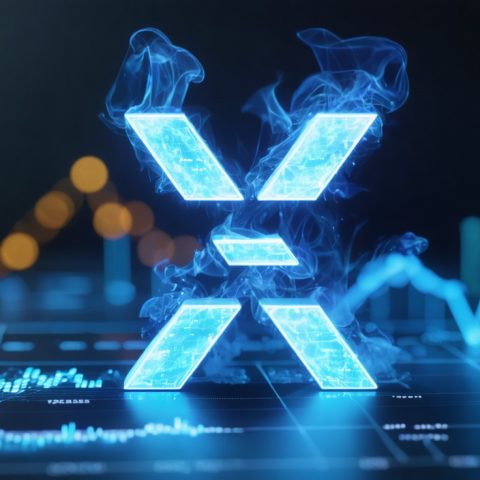As the automotive industry embraces digital transformation, Ford and Toyota are at the forefront, pioneering the integration of blockchain technology into vehicle management systems. Their recent surge in patent filings indicates a strong commitment to this innovative path. In the second quarter of 2024, both companies collectively filed approximately 43 patents related to blockchain, showcasing their ambition to lead the automotive blockchain sector.
Ford notably stepped up its efforts, increasing its patent applications from three in the previous quarter to an impressive 14. This leap highlights their focus on creating a secure and transparent framework for vehicle ownership. One of their new patents aims to implement a blockchain solution that will maintain an unalterable record of vehicle ownership history, effectively tracking title changes in real time through smart contracts.
Meanwhile, Toyota’s strengthening position is underscored by its increase from 25 to 29 blockchain-related patents. A noteworthy initiative involves developing a blockchain system for managing non-fungible tokens (NFTs) tied to vehicle inventory, which ensures that the status of vehicles held by dealers is accurately represented on the blockchain.
With these advancements, Ford and Toyota are not only enhancing their operational capabilities but are also setting a precedent in the auto industry for secure vehicle transactions. As blockchain technology continues to grow across various sectors, its application in the automotive realm is emerging as a promising frontier for both manufacturers and consumers alike.
Ford and Toyota Revolutionize Automotive Technology with Blockchain Innovations
As the rapid evolution of technology reshapes industries around the world, Ford and Toyota are taking bold steps in integrating blockchain technology to transform the automotive landscape fundamentally. While their recent patent applications highlight their commitment to innovation, there are additional dimensions to their blockchain initiatives that warrant a closer examination.
Key Questions and Answers
What specific benefits do blockchain technologies offer to Ford and Toyota?
Blockchain technology provides multiple benefits, including enhanced security for vehicle ownership records, reduced fraud risks, and improved transparency in transactions. Smart contracts, which can automate various processes, promise to streamline operations such as leasing and sales, ultimately increasing efficiency.
How will these blockchain innovations affect consumers?
Consumers will likely experience greater confidence in purchasing vehicles, knowing that ownership records are secure and verifiable. Furthermore, the potential for real-time tracking of vehicle history could facilitate more informed buying decisions and easier resale processes.
What are the challenges associated with implementing blockchain in the automotive industry?
Several challenges exist, including the need for standardization across different manufacturers and jurisdictions, ensuring data privacy, and overcoming the technological complexity of blockchain integration. Additionally, the automotive sector must address concerns about the potential environmental impact of blockchain systems, primarily those using energy-intensive consensus mechanisms.
Advantages and Disadvantages of Blockchain Integration
Advantages:
1. Enhanced Security: Blockchain’s decentralized nature significantly reduces the risk of data tampering, offering secure records of vehicle ownership and transactions.
2. Improved Transparency: Every transaction is recorded on a public ledger, allowing stakeholders, including buyers, sellers, and manufacturers, to track vehicle histories effortlessly.
3. Increased Efficiency: Automating processes through smart contracts can reduce the time and costs associated with handling vehicle transactions and asset management.
Disadvantages:
1. Complexity and Cost: The initial setup of a blockchain system can be costly, requiring investment in both technology and training.
2. Scalability Issues: As the network grows, achieving scalability while maintaining speed and efficiency can be challenging.
3. Regulatory Uncertainties: The regulatory landscape surrounding blockchain technology is still evolving, which creates uncertainties for companies seeking to adopt it.
Related Innovators in the Blockchain Space
Other automotive companies are also exploring blockchain applications, emphasizing the growing interest in the technology. Companies like BMW and General Motors are researching how blockchain can enhance supply chain transparency and enable direct sales models, reflecting a broader trend in the industry.
Conclusion
Ford and Toyota are not just adopting blockchain; they are setting new standards for the automotive industry. While challenges remain, the potential benefits of implementing blockchain technology—improved security, transparency, and efficiency—could reshape how consumers interact with vehicles in the coming years. As these innovations unfold, they may very well lead to a new era of trust and efficiency in automotive transactions.
For more detailed insights into automotive technology advancements, visit Forbes and learn about the latest trends and innovations shaping the industry.










